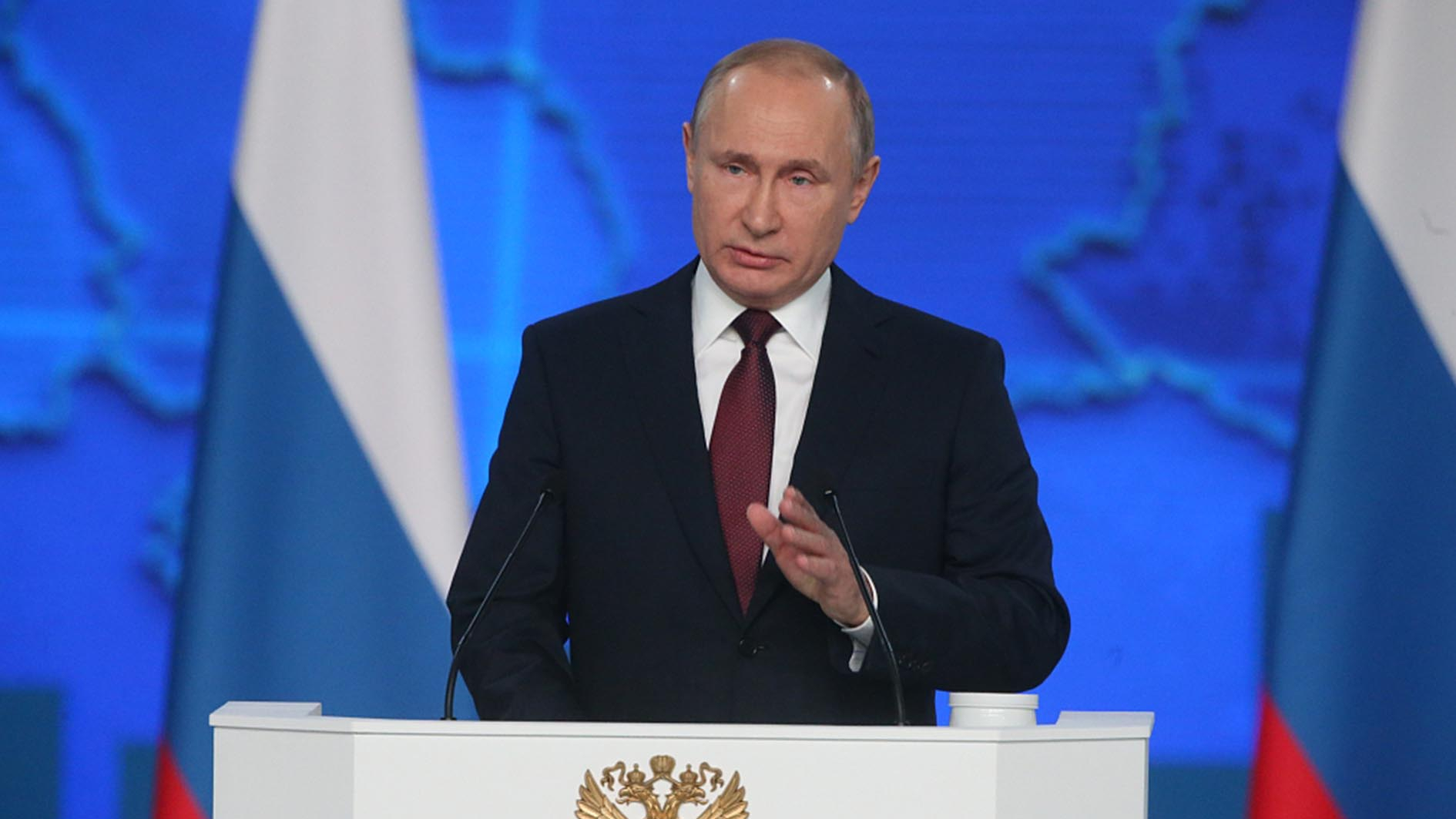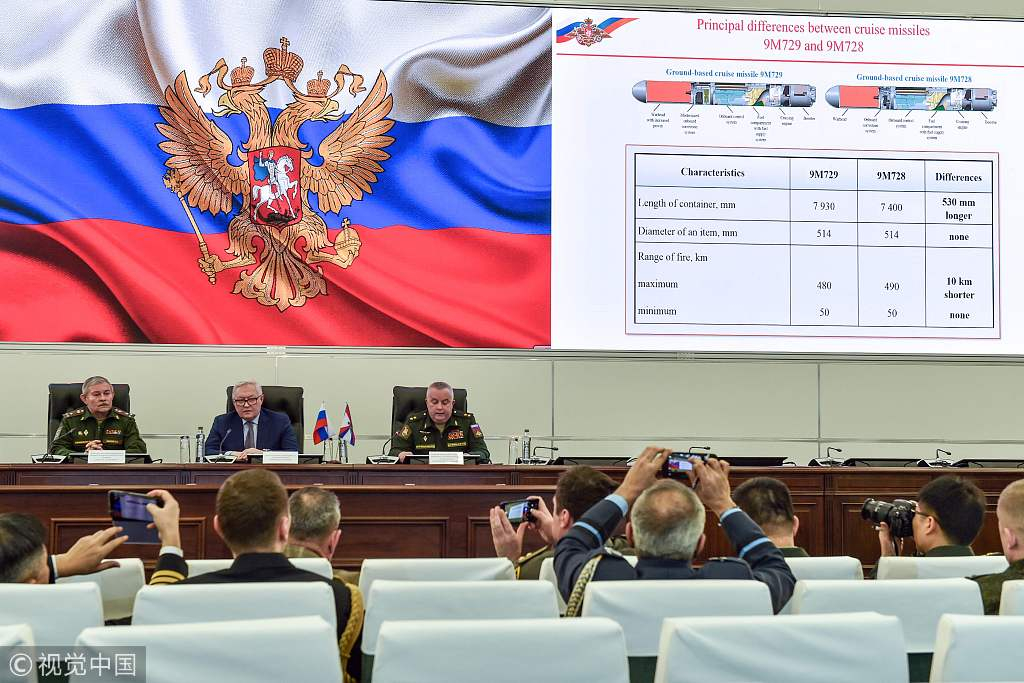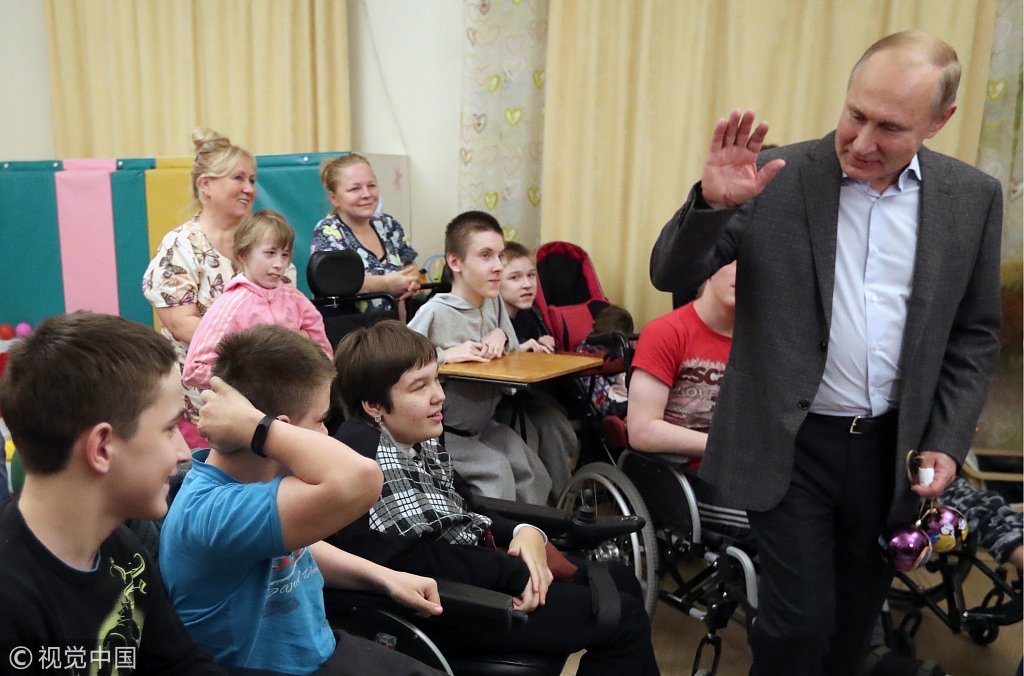
Asia Pacific
17:34, 20-Feb-2019
Putin vows retaliation if U.S. 'deploys missiles in Europe'
Updated
21:27, 20-Feb-2019
CGTN
00:29

Russia will respond to any U.S. deployment of short or intermediate-range nuclear weapons in Europe by targeting not only the countries where they are stationed, but the United States itself, Russian President Vladimir Putin said on Wednesday in an address to the Federal Assembly.
It was his first address to both houses of parliament since he was elected to a fourth presidential term a year ago.
Putin stressed that Russia was not seeking confrontation and would not take the first step to deploy missiles, in response to Washington's decision this month to quit a landmark Cold War-era arms control treaty.

Russian artillery chief Mikhail Matveevsky (R) and deputy foreign minister Sergei Ryabkov (C) hold a briefing on 9M729 cruise missile that the U.S. says violates the Intermediate-Range Nuclear Forces Treaty, in Moscow, Russia, January 23, 2019. /VCG Photo
Russian artillery chief Mikhail Matveevsky (R) and deputy foreign minister Sergei Ryabkov (C) hold a briefing on 9M729 cruise missile that the U.S. says violates the Intermediate-Range Nuclear Forces Treaty, in Moscow, Russia, January 23, 2019. /VCG Photo
But he said that Russia's reaction to any deployment would be resolute and that U.S. policy-makers, some of whom he said were obsessed with U.S. exceptionalism, should calculate the risks before taking any steps.
"It's their right to think how they want. But can they count? I'm sure they can. Let them count the speed and the range of the weapons systems we are developing," Putin said.
"Russia will be forced to create and deploy types of weapons which can be used not only in respect of those territories from which the direct threat to us originates, but also in respect of those territories where the centers of decision-making are located.”
Strengthening EAEU-BRI synergy
Putin also stressed that Russia will continue to strengthen the synergy of the Eurasian Economic Union (EAEU) with the Belt and Road Initiative.
The Belt and Road Initiative proposed by China in 2013 consists of the Silk Road Economic Belt and the 21st-Century Maritime Silk Road.
It aims to build a trade and infrastructure network connecting Asia with Europe and Africa along and beyond the ancient Silk Road trade routes.
The EAEU comprises Russia, Armenia, Belarus, Kazakhstan and Kyrgyzstan, with an aim to encourage regional economic integration through the free movement of goods, services and people within the union.
In the context of the pairing of the Belt and Road Initiative and the EAEU, infrastructure development would be a key aspect.
Promises about better living conditions
In his Wednesday address, Putin also promised Russians rapid improvements in their living conditions.
"We cannot wait, the situation must change for the better now," Putin said. "Within this year [Russians] should feel changes for the better."

Russia's President Vladimir Putin (R) visits a children's hospice in St. Petersburg, Russia, Jan. 6, 2019. /VCG Photo
Russia's President Vladimir Putin (R) visits a children's hospice in St. Petersburg, Russia, Jan. 6, 2019. /VCG Photo
The Russian leader announced several policies that he said would boost living standards, while addressing the country's declining birth rate.
These included new child benefits and reduced taxes for large families.
"We did and will do everything for the strengthening of family values," he said. "The incomes of Russian families should of course rise," he said.
"The principles should be – the more children, the less taxes," Putin said, adding that Russia is going through a "difficult stage" in demography.
In his speech, he also touched upon issues like poverty reduction, infrastructure modernization and education.
Source(s): AFP
,Reuters
,Xinhua News Agency

SITEMAP
Copyright © 2018 CGTN. Beijing ICP prepared NO.16065310-3
Copyright © 2018 CGTN. Beijing ICP prepared NO.16065310-3